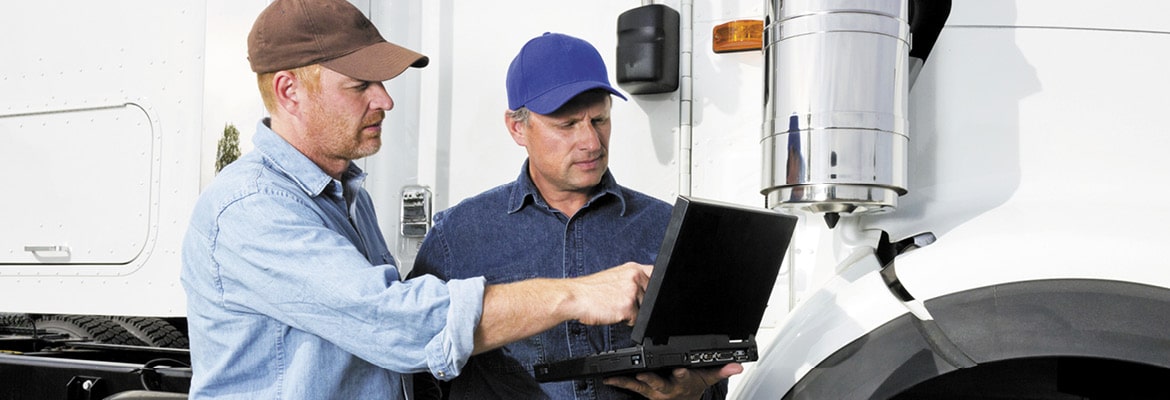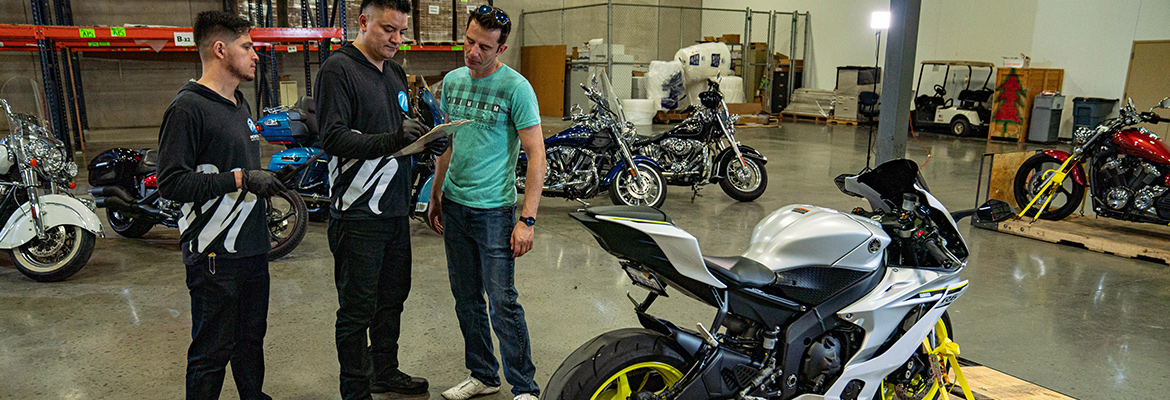Thousands of people move their cars across the country every day. Whether they’re relocating for work, leaving for college, moving to a new home or just traveling for the season, having a car is a necessity for many people. However, not everyone is able to make the drive themselves and instead hand their keys over to an auto transporter to deliver the car safely to its destination. Auto transporters operate under a few different names— you may have also heard of car shippers and carriers—but their end goal is the same: to safely and efficiently move vehicles from one destination to another.
Transporting an automobile sounds simple enough on paper, but picking up, transporting and unloading vehicles is a big responsibility with potential liabilities. Therefore, it requires specialized training and certifications to do the job safely. That’s why professionals need to obtain special licensing like motor carrier permits and Department of Transportation (DOT) number, to legally operate as an auto transporter.
In this post we’ll explain the licenses, permits and identification numbers auto transporters need to obtain before they go into business. If you’re somebody looking to book an auto transporter to move your car, we’ve also provided some tips to help you research a car shipper’s credentials. This is valuable information whether you’re looking into becoming a motor carrier yourself, or you want to hire one to ship your vehicle.
Auto Transport Licenses
There are a number of different licenses, permits and credentials required when operating any kind of motor vehicle, and even more when that vehicle is being used for commercial purposes or to transport possessions. You’ve likely heard of CDLs and maybe even DOT numbers, but there is even more documentation needed to legally operate a car shipping business. We’ll break down each of these in the section below. Keep in mind that specific terms and requirements may vary from state to state.
These are the requirements drivers need to operate as an auto transporter:
- Commercial driver’s license (CDL)
- Federal Motor Carrier Safety Administration (FMCSA) registration
- Motor carrier number (assigned with FMCSA registration)
- United States Department of Transportation (USDOT) number
Commercial driver’s license (CDL)
In addition to the most obvious requirement—a state driver’s license— most auto transporters need to have a commercial driver’s license (CDL). There are three different types of CDLs: Class A, Class B and Class C. The CDL class required is determined by the vehicle’s weight and the type of cargo it is transporting. Most auto transporters will be able to operate with a Class A CDL.
To obtain a CDL, drivers must complete an additional training program and meet the specific requirements for commercial drivers in their state. Read more about how to get a commercial driver’s license.
Federal Motor Carrier Safety Administration (FMCSA) registration
The next item on the auto transporter checklist is to get registered with the Federal Motor Carrier Safety Administration (FMCSA). Commercial vehicles transporting cargo across state lines must be registered with the FMCSA, and in many states, must also have a USDOT number (more on that in the next section.) The FMCSA monitors and ensures compliance with motor carrier safety and commercial regulations.
Insurance also plays an important role in these licenses and registrations. “In addition to filing an application for operating authority, all applicants for motor carrier, freight forwarder, and broker authorities must have specific insurance and legal process agent documents on file before the FMCSA will issue the authorities. The required filings vary, based on the types of registrations involved.” (fmcsa.com) Motor carriers, for instance, may be required to present public liability insurance before receiving FMCSA authorization.
Having a license with the FMCSA means the driver will be monitored and adhere to the outlines given to them by the administration.
United States Department of Transportation (USDOT) number
USDOT numbers and FMCSA registration often go hand in hand. A USDOT number is required for vehicles that exceed a specific gross vehicle weight rating and are involved in interstate commerce. These numbers act as a unique identifier when collecting and monitoring a driver or transportation company’s safety information, audits, compliance reviews, vehicle inspections and crash investigations.
Currently, 47 states also require a USDOT number not only for interstate commercial vehicles, but for intrastate as well. Considering these requirements, it’s a guarantee that you will need to register for a USDOT number in order to become a fully licensed auto transporter.
Motor carrier number
Not to be confused with a DOT number, motor carrier (MC) numbers are used to identify carriers that are transporting regulated commodities. In other words, DOT numbers identify a carrier that works between states, while the MC number confirms that they’re approved to haul cargo across state lines. With auto transporters working to deliver cars from one state to another, or even across the country, it’s quite common for them to have both an MC and DOT number.
That covers the basic requirements you’ll need to have to become an auto transporter. If you want to learn more about any specific licenses or registrations, or you’re ready to start applying, visit the FMCSA website. There you’ll find the instructions on how to register with FMCSA and USDOT, how to get an MC number and other resources to help you get started.
Auto transport brokers
Once a driver is registered to work as an auto transporter, they can choose to work with an auto transport broker. Auto transport brokers like Montway have a large network of car carriers serving multiple areas across the country. Customers that need to ship their vehicles often choose to work with a broker to eliminate the hassle of contacting carriers themselves and comparing multiple rates. In many cases, a broker can offer a lower rate since they have carriers competing for the business.
Just like individual carriers and transport companies, auto transport brokers must have their own licensing. Reputable auto transport brokers will be registered with the Department of Transportation and the FMCSA and will have their own USDOT numbers. They will also often check that the carriers they work with are properly licensed and insured so both the broker and their customers can trust that the vehicles are in good hands.
In addition to their licenses, auto transport brokers are required to be bonded. Bonds are a legal requirement that guarantee the car shippers get paid for their work. Licensing and bonding are required by the DOT and FMCSA to ensure all parties involved in the auto transport process are operating legally and can be held accountable for their work.
In short, the purpose of all these permits and licenses is to make sure that a driver is operating within the law and that they will take responsibility for any vehicles in their possession. These licenses are an effective way to track and monitor commercial drivers across the country and verify that they are reputable businesses. Reviewing a vehicle shipping company’s licensing is an important step to choosing a good auto transport company.
Tips for choosing a reputable auto transport company
Once you’ve confirmed that your auto transport provider is fully licensed and insured to ship your car, you’ll want to find out what kind of experience you can expect to have when working with them.
One of the most common and effective ways to learn about a company is through their customer reviews. Browse through online reviews about a company, keeping in mind the number of reviews and the company’s average rating. You should also take notice of customers that have made moves similar to yours—does the company have experience moving the kind of vehicle you have? If you need to transport a specialty vehicle like a motorcycle or ATV, do they have a proven track record of completing these kinds of shipments? Make sure that the company you choose is the right fit for you.
The Better Business Bureau (BBB) is another great resource that will tell you what kind of customer service experience you can expect. The BBB keeps a record of company reviews and performance and assigns them a rating accordingly. They don’t typically have a record of a transport company’s licenses or certifications, but they will reveal if a company is operating honestly and delivering on their promises.
Ready to ship your vehicle?
Now that you know exactly how to find the most reputable auto transport company, you can plan your move with confidence. Whether you’re moving across state borders or across the country, Montway has a thoroughly vetted network of carriers ready to ship your car, truck, SUV or specialty vehicle.
Montway is a fully licensed and bonded transportation management company, registered with the USDOT (#1673578) and FMCSA with broker license number 2239816. Not only is your vehicle insured by the cargo carrier when you ship with Montway, but we also have our own contingent cargo insurance that protects you up to $250,000. Over 64,000 customer reviews and an A+ rating from the BBB speak to our track record of success. Get started with a free instant quote or speak with a vehicle shipping advisor at 888-666-8929 to learn more.








